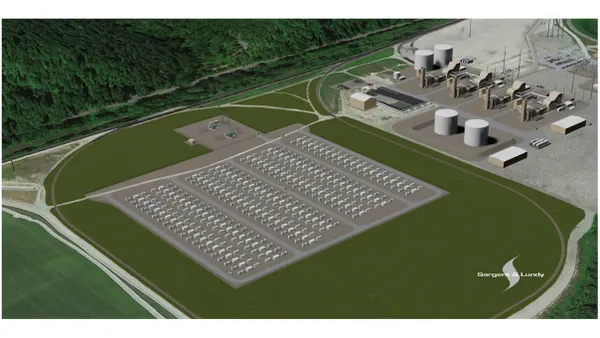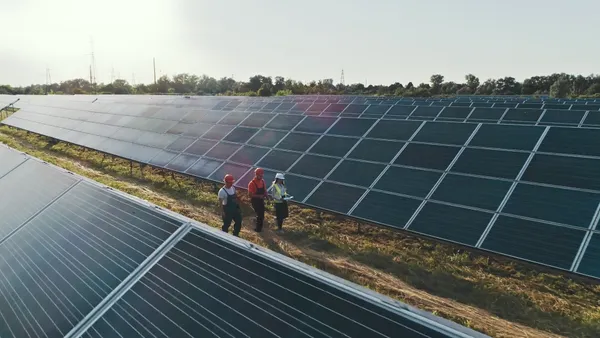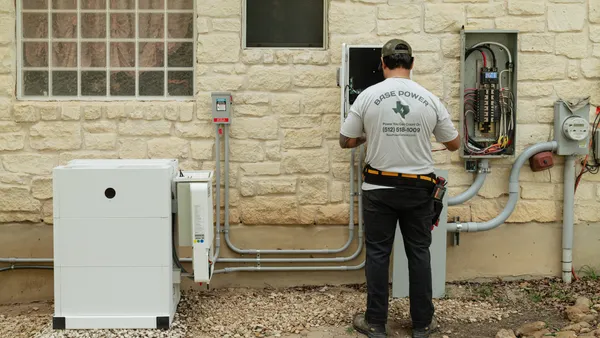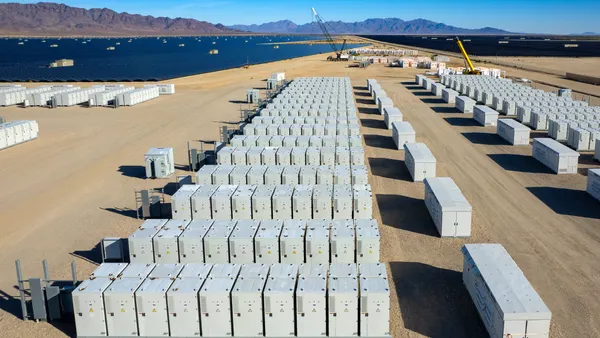Dive Brief:
- An investment tax credit (ITC) for standalone storage resources is unlikely to pass under a Joe Biden presidency with a Republican-controlled Senate, but there’s a chance it could be part of a broader compromise, according to Dan Finn-Foley, head of energy storage at Wood Mackenzie.
- "A standalone storage ITC has been discussed before — it hasn’t passed, and my base case currently assumes it isn’t going to be passed in this Congress, but there is the possibility of that as some sort of bargain, perhaps with a stimulus bill," Finn-Foley said at the Greentech Media Energy Storage Summit Monday.
- Storage advocates have been pushing for a standalone storage ITC, which they say could offset some of the near-term and medium-term impacts of COVID-19 on the sector. According to a 2019 analysis from Wood Mackenzie, the credit could lead to as much as a 16% upside for the U.S. storage market, Finn-Foley said.
Dive Insight:
Former Vice President Joe Biden is poised to become the next president of the U.S., pending certification, but the outcome of the 2020 election in the Senate is less clear and conditioned on two run-off races in Georgia next January.
Wood Mackenzie projects the U.S. storage market will grow to nearly 7 GW annually through 2025, according to Finn-Foley, partly due to the potential to pair it with other resources like solar, wind and even geothermal and natural gas plants. In the past, pairing storage resources with solar facilities has allowed the industry to take advantage of the solar ITC.
One of the advantages of energy storage is its ability to capitalize on volatility, according to Finn-Foley — "whether that volatility is created in wholesale markets due to renewable penetration, or if there’s uncertainties surrounding policies, or if there’s risks involving long-term contracts that you have in these markets, or even if there’s just volatility with resilience."
And with a projected administration change in Washington, if a compromise is struck and a standalone storage ITC is passed, projects will become economic earlier than they otherwise would, and the industry will accelerate due to the increased scale. There would also be less of an incentive to pair storage with solar resources, "which means these two strongly linked markets could begin to be decoupled, which is a big deal," Finn-Foley said.
Assuming a scenario in which Biden is president but Republicans retain their Senate majority, there are still ways that a divided government could accelerate the energy transition, Finn-Foley said. One area is in terms of the personnel he could bring into his administration or federal agencies.
"Biden will have the opportunity to install people at the heads of the various federal agencies — he will be able to potentially have a climate czar, you could see movement at" the Federal Energy Regulatory Commission, Finn-Foley said, although a lot of these appointments will have to go through the Senate first.
Another avenue is through executive actions, like re-entering the Paris climate agreement, or weighing in on how federal lands are used and fossil fuel infrastructure is approved. A third is what he calls "a grand bargain," where a necessity like a coronavirus relief package comes about, where both sides of the aisle come together and strike some sort of compromise — something that Biden has a track record of doing in a divided government, Finn-Foley said.
In terms of the implications of the new political landscape, two of the biggest federal rules currently on the books that are impacting the storage industry are the Section 301 tariffs on Chinese goods and President Trump’s executive order on securing the bulk power system, according to Kelly Speakes-Backman, CEO of the Energy Storage Association. The other places limits on bulk power system equipment sourced from U.S. adversaries.
"I think with this administration, that has expressed an interest in "buy American," we’re not going to see frankly, I don’t think, a wholesale repeal necessarily of the tariff. I think what we may see on the tariff side is more explicit and specific categorization, I think we’ll get more clarity," Speakes-Backman said at the Storage Summit. And even if the next administration doesn’t repeal the bulk power system executive order, they will likely put more specifics around what it does and does not include.
Speakes-Backman remains optimistic about the policy possibilities of a Biden administration, including getting a standalone storage tax credit to put the industry on a level playing field.
"There’s going to be a lot of really interesting things for us to get behind, and get excited about, and help make it better, specifically for storage," she said.
At the same time, the clean energy industry in the U.S. has moved forward in spite of policies, Joe Mastrangelo, CEO of Eos Energy Storage, said at the event.
"Although you could say that the Trump administration was not supportive of renewables, coal retirements continued to happen, nuclear decommissionings continued to be announced. There’s been a shift to more wind, more solar, offshore wind in the U.S. So we’ve reached, in my view, this tipping point of where the industry’s moving to an entirely new energy mix," Mastrangelo said.
However, many new technologies are going to require support when it comes to jumping from the research and development phase to manufacturing at scale, Mastrangelo added — "how do you find the right financing and the right insurance of new technologies… to accelerate the shift to a lower-carbon energy value chain?














